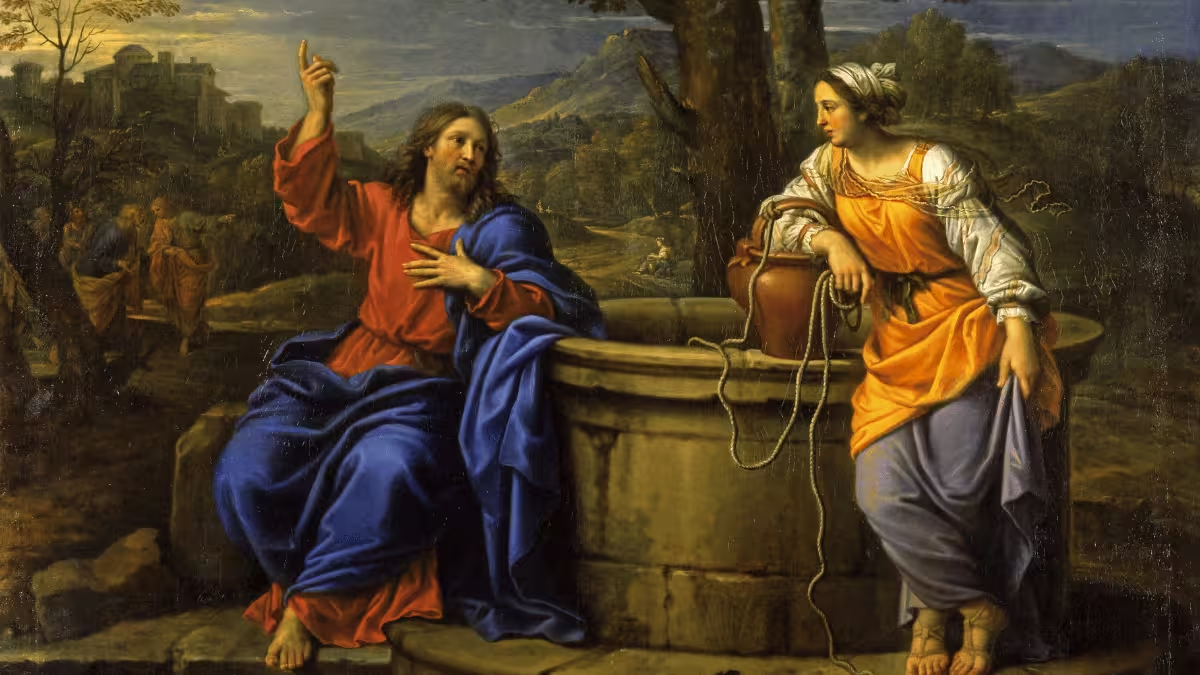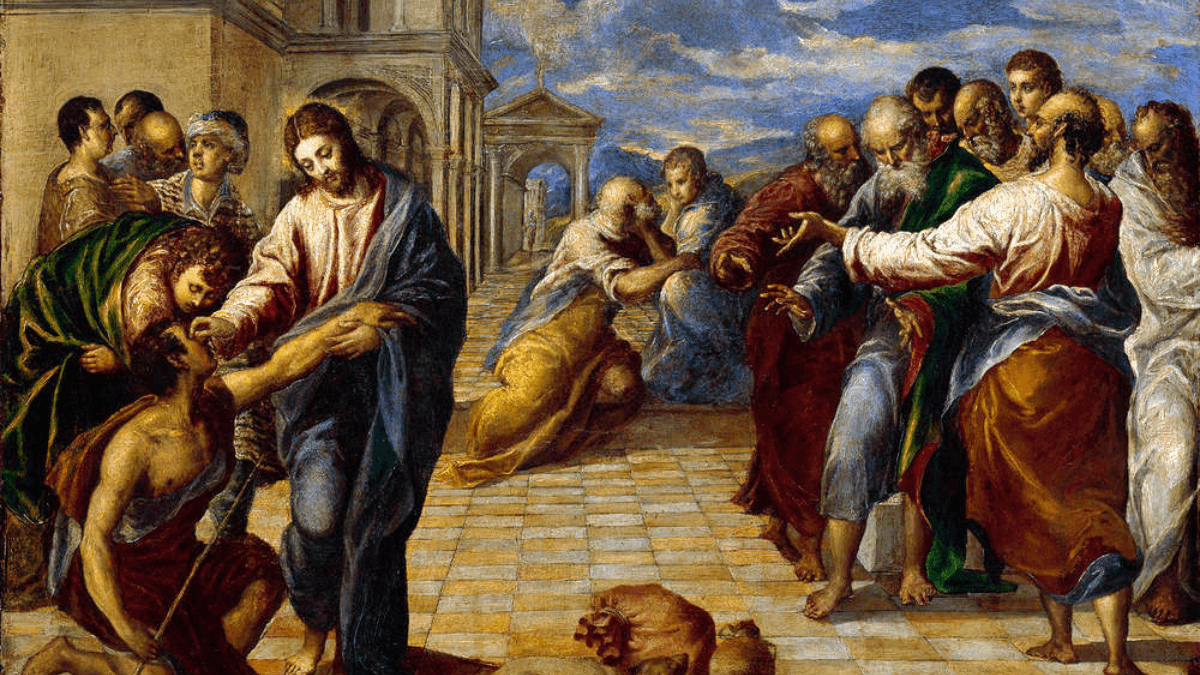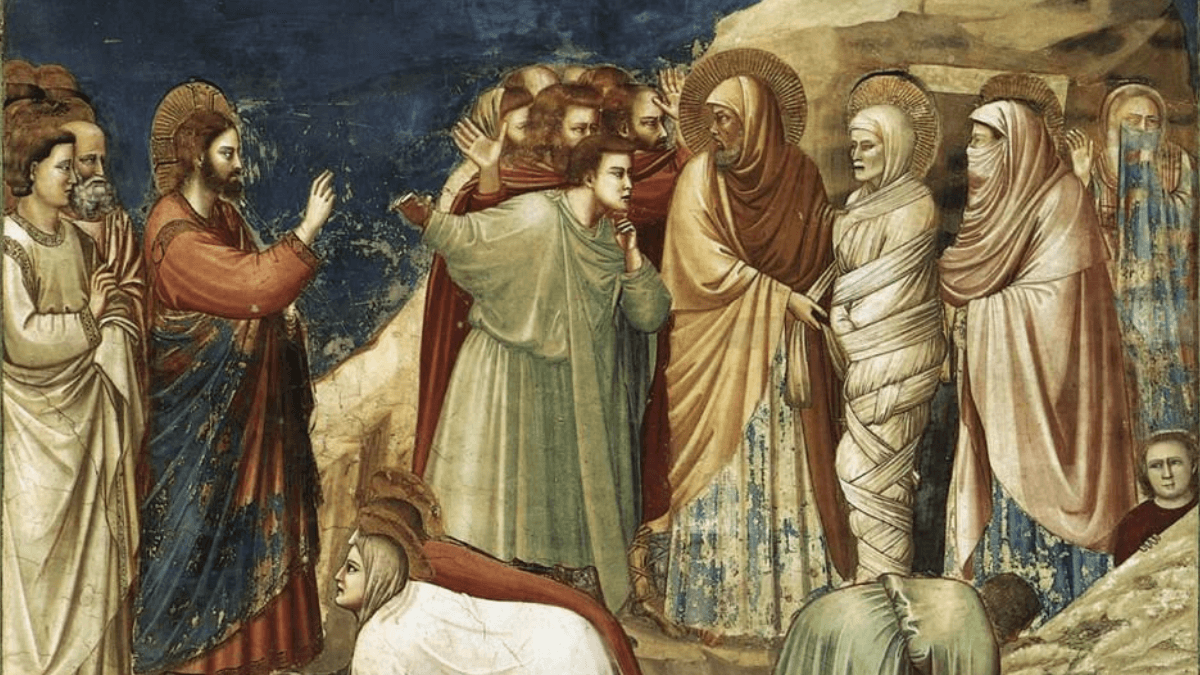Bible on the Back Porch
Reading, pondering and studying God’s Word is sometimes best done “on the back porch.” Each week we will try to offer something for you and your “back porch time.”

2nd Sunday of Lent, Year A

"He was transfigured before them...."
The description of the Transfiguration is brief—just the first three verses of Matthew 17. But the incident becomes the context for two significant incidents for the disciples. In the first, Peter’s hasty response to the glory of the Lord (…make three tents) is corrected by the same heavenly voice heard at Jesus’ baptism (17:4–8; cf. 3:17). In the second, Jesus once again forbids the disciples to make him known (cf. 16:20), which leads to their question about the future coming of Elijah (17:9–13). Thus, the passage contains the transfiguration proper (17:1–3), a lesson on the fulfillment by Jesus of all that is promised in the Hebrew scriptures (17:4–8), and a lesson on the continuity of John the Baptist with Elijah of old and with Jesus himself (17:9–13).
As always, a lot going on in the gospel reading. Grab a cup of your favorite beverage and take a moment on the back porch with the Word of God – and go back in time to the world of the first century. Grab your favorite beverage and take some time of the back porch.
Full Text of the Sunday Gospel
Detailed Commentary
Image credit: Sunrise, Simon Berger, Pexels, CC
Why this gospel?
By the Second Sunday of Lent, the Church wants us to be very clear about where this road leads. In every Synoptic Gospel, the Transfiguration occurs after Jesus has spoken about suffering, rejection, and death. The disciples have just heard words they do not want to hear. Confusion and fear have entered the picture. The Transfiguration does not cancel the Cross. It reveals who Jesus is as he goes toward it. Lent is not about grim endurance for its own sake. It is about learning to walk with Christ through suffering, trusting that God’s glory is not absent from it.
3rd Sunday of Lent, Year A

The Woman at the Well
The story of Jesus and the Samaritan Woman at the well is one of St. John’s best known stories. It is rich is meaning with layers and layers of theology, Christology, but most of all it is a story of conversion – a story in which the woman’s deepest thrirst is brought to Jesus who satisfied her longing to more deeply know God. You are strongly encouraged to take a time to read the detailed commentary and explore all the riches of this story.
As always, a lot going on in the gospel reading. Grab a cup of your favorite beverage and take a moment on the back porch with the Word of God – and go back in time to the world of the first century. Grab your favorite beverage and take some time of the back porch.
Full Text of the Sunday Gospel
Detailed Commentary
Christ and the Woman of Samaria | Pierre Mignard, 1681 | The North Carolina Museum of Art, Raleigh | PD
Why this gospel?
The Church’s choice of the Samaritan Woman at the Well (John 4) for the 3rd Sunday of Lent (Year A) gospel is deliberate, and deeply pastoral. It sits at the heart of Lenten gospels not by accident, but because it reveals what Lent is for: Lent is a journey of conversion and this is a conversion story.
By the 3rd Sunday of Lent, the Church has moved beyond the opening call to repentance in the first two Sunday gospels and into the interior work of conversion. But it is important to note that the Samaritan Woman’s story is not about moral failure first; it is about thirst. She comes to the well at noon alone, exposed, avoiding community. She is searching for water, but what she really desires is dignity, belonging, and peace. Jesus does not begin with accusation; he begins with relationship. Lent, at its core, is about allowing Jesus to name our deeper thirsts and redirect them toward God.
Historically, this Gospel is tied to the Scrutinies for those preparing for Baptism at Easter. In the early Church the 3rd, 4th, and 5th Sundays of Lent were explicitly baptismal Sundays. The Samaritan Woman represents everyone who approaches Baptism thirsty but uncertain, carrying a past yet open to transformation. As such water dominates the story: ordinary water vs. living water, the well vs. the spring within, and drawing water vs. receiving life. The Church proclaims this Gospel to say: Baptism is not just cleansing — it is the gift of a new source of life.
Another theme of this reading appropriate to Lent is that Jesus reveals himself gradually to the woman, as He does to us. Notice the slow unfolding of Jesus’ identity: a Jewish man, a prophet, the Messiah, and finally, “I am he.” This mirrors how faith grows during Lent. Conversion rarely happens all at once. It unfolds through dialogue, resistance, misunderstanding, and trust. The Church places this Gospel here to reassure us that faith deepens through honest encounter, not instant certainty.
One of the most striking elements of this Gospel is its movement: she comes alone, she leaves her jar behind, and she returns to the town as a witness. This is the shape of Christian conversion: encounter, healing, and mission. On this Third Sunday of Lent, the Church wants us to see that repentance is not about withdrawal or self-loathing, but about being sent back into life differently.
That movement is consistent with a theme that carries across all Scripture – new and old: the crossing of boundaries. Jesus crosses multiple boundaries: Jew and Samaritan, man and woman, and righteous teacher and morally compromised listener. This matters deeply in Lent, because conversion always involves allowing God to challenge our categories: who belongs, who is worthy, and who can speak for God. The Samaritan Woman becomes the first missionary to her people; a reminder that grace is never earned and never limited.
There is a rhythm to the Lenten Sundays gospels in Year A. On the 1st Sunday the story of Jesus’ Temptation asks us to choose whom we will serve. On the 2nd Sunday, the Transfiguration, we are asked to see who Christ really is. Now on this Sunday, the story of the Samaritan Woman asks us to recognize our thirst and receive living water. By the Third Sunday, the Church is saying: You cannot walk toward Easter without first confronting what you truly thirst for.
Finally, this Gospel is well chosen because it speaks powerfully to ordinary human experience of broken relationships, unmet desires, spiritual fatigue, and longing for something more. Jesus does not shame the woman. He knows her fully and remains present to her. That is the Lenten promise to all of us. By this Sunday, the Church gently asks each of us: “What are you really thirsting for — and are you ready to let Christ satisfy it?”
The Man Born Blind

4th Sunday of Lent
In the Gospel of John there are seven miracles (called “signs” / semeia). They always point beyond themselves to the divine – not just the divine as a vague power, but to a person. They identify Jesus as the light and life of the world, the bread of life from heaven, and the Logos who, through the semeia/signs, reveals his own glory, which is also the glory of God his Father, since he and the Father are one and since he does the Father’s will and works. These signs are given that we might believe (Jn 20:26). For John, sin is the failure to believe and accept the consequential changes in one’s life. All the characters of John 9 (on-lookers, neighbors, parents, the Pharisees and other religious leaders) are judged in their failure to acknowledge Jesus as Lord and Savior and to subsequently become witnesses to Jesus as the glory of God.
For all the people in the gospel story, the day started out as ordinary, just a regular day. The man born blind takes his usual place for begging. His parents go about their day. Even the Pharisees are about their routine. And in a moment ordinary is torn asunder all because of an encounter with Jesus. Everyone in the account has been given the conditions for the possibility of enhanced sight. Physical sight for the man born blind, but spiritual sight for all the people.
After all the events of that day, the man born blind entered a world he once could only engage by touch and sound. Now he could see and was forced to find a new rhythm and “ordinary” in this new world – all because of a personal encounter with Jesus.
You can find the full text of the Sunday gospel here. And if you are interested in a detailed commentary, one is available here.
The first reading for the 4th Sunday is from the 1st Book of the Prophet Samuel. Take 7 minutes and watch this overview video on the first of the two prophetic books.
The Raising of Lazarus

5th Sunday of Lent
The account of the raising of Lazarus from the dead is told in John 11:1-45. In the telling, St. John offers us another sign (as he calls miracles). While the story stands on its own, it is part of a larger narrative’s flow in which Jesus is revealed by signs. The account follows the story of the healing of the man born blind (John 9:1-41). In the commentary on that gospel it was explained that the miracles (called “signs” / semeia) in the gospel point beyond themselves to the divine – not just the divine as a vague power, but to a person. The person who restored sight to the man blind since birth. The one who proclaims: “I have come that they might have life and have it to the full” (John 10:10)
Chapter 10 continues the revelation of Jesus – and like the chapters before it, also reveals faith among people in the way they respond to the signs – or sin in the way they fail/refuse to respond to the sign. In John 10, Jesus reveals/identifies himself as the good shepherd (10:11,14) promised by Zechariah 34 who would bring the lost sheep of Israel back into the covenant relationship. But we see the hard hearts in scene after scene. Despite all the signs, there is a hardness of heart that always wants more signs before the commitment can be given. It is in this context that returning someone from the dead establishes the ultimate “fish or cut bait.”
In the Gospel we see Jesus, holding two grief-stricken sisters in his arms, and telling them with absolute certainty that he is the Resurrection and the Life. Jesus proclaims the truth of eternal and abundant life in bold, unapologetic tension with his own inner turmoil as he came face-to-face with the death of his friend. “When Jesus saw her weeping and the Jews who had come with her weeping, he became perturbed and deeply troubled…and Jesus wept.” (John 11:33,5).
It is not just the dead who suffer. It is everyone around them who also suffers. There are aspects of the story that pull us to consider them more deeply, there is one part of the story that stands clear. It is a story well-suited for pandemics, plagues, death, doom, flood, fire, famine, and all manner of disease, disaster and human folly. It is an account that shows grief taking hold of Jesus, taking hold of God and breaking him down to tears. It is the clearest, most human, revelation of the Divine. And Jesus wept. Weeping in the same moment he proclaims he is the Resurrection and the Life. Weeping, for while God will have the last word, in this moment death is speaking.
This is a gospel that holds clear the promise of resurrection and joy but does not race past the moment when Mary and Martha are grieving. He weeps for Lazarus and he joins the sisters in their grief. His kindness calls us all into the holy vocation of empathy, compassionate suffering, and mourning.
You can find the full text of the Sunday gospel here. And if you are interested in a detailed commentary, one is available here.
The first reading is from the Prophet Ezekiel. Our passage is from a section that is a message of Hope to a people who were hard-hearted, strayed from the covenant into idolatry, and as a result were taken into exile in Babylon. The first reading is like the gospel but instead of raising one man, the Lord resuscitates a whole nation of people – raising them from the graves of their exile. This video will give you an introduction to the Book of the Prophet Ezekiel